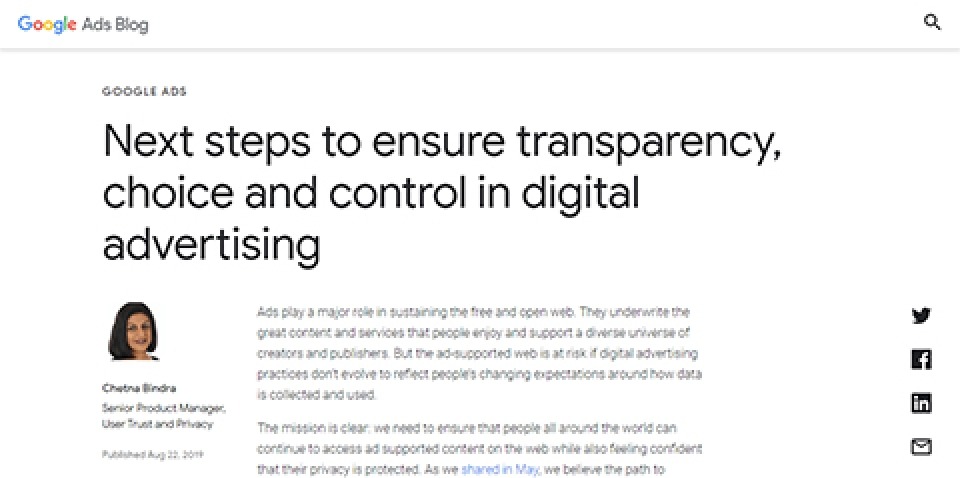The infamous “cookies” we all see a message about everytime we visit a website are small snippets of text that are stored on your browser in order to tell websites something about an action you’ve taken online.
Websites need these for knowing when you’ve added something to your basket, or perhaps asked to not be shown a message again. When the cookie is placed by the website you’re visiting, that’s called a First Party Cookie. And these are generally useful little guys that the website needs to place in order to work effectively.
Third Party Cookies however, are ones set by websites / organisations OTHER than the one you’re actually on – so if you’re reading a blog, an advertiser on the blog may use a cookie to know what you’re looking at or to leave a note to show you another “relevant” ad of theirs when you visit another website.
It’s these third party cookies that people generally have issue with – they’re not about functionality and a smooth user experience, they’re about knowing more about you so people can sell to you.
Google made headlines on the BBC last week as they announced they aim to cut down on the third party cookies on websites people view using Chrome, Google’s browser. So as a headline, that sounds great. But Google make a tonne of money from just these sorts of things – about $33 billion in the second quarter of 2019. Plus, publisher’s claim their revenue drops 52% when ads aren’t targetted – so whatever they do, they’re going to be sure to make sure advertisers can still get what they need.
Google have announced a timeline of 2 years for these changes to come into effect, but industry experts think this month’s announcements are more like “conversation starters” than actual plans as there is a mountain to climb in order to keep everyone happy and consider all the possible loop holes. Apple and Firefox have already blocked third party cookies by default, but Google – with their huge ad network – need to tread more carefully, and, to be honest, more realistically so that they can find a future for advertisers and consumers that doesn’t leave anyone feeling violated.



